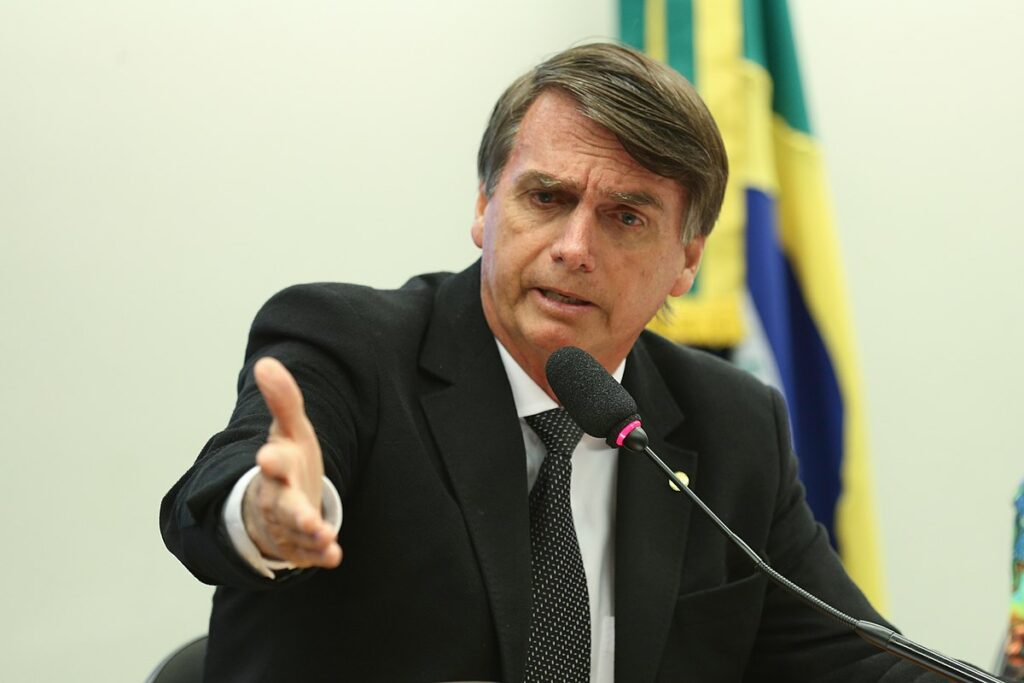Abortion
Pro-life activists are on the march in Brazil
If you visit a hospital or clinic in Rio de Janeiro, Brazil, you will be greeted by an anti-abortion sign bearing messages such as:
“You have the right to give your baby up for adoption anonymously … Give life a chance!”
“Abortion can lead to consequences such as infertility, psychological problems, infections and even death.”
And:
“Did you know that the unborn child is discarded as hospital waste?”
The last message is particularly powerful: short, evocative, and worst of all, true.
I have held aborted babies pulled from dumpsters. Dr. Monica Miller has noted that a single question potently reveals what we have lost to abortion: “Where do you put 60 million bodies?” In cultures that permit abortion, babies are treated like garbage.
The signs in Rio de Janeiro are required thanks to a new law passed by the municipal government as pro-life politicians increasingly push back against the pro-abortion “Green Wave” movement seeking to legalize abortion across South America. In Brazil, the largest country in Latin America, abortion is legal only in cases of rape, threat to the life of the mother, or if the baby is diagnosed with anencephaly.
But as The Guardian has noted, “Reproductive rights activists view the [municipal law] as the latest example of a growing trend across Brazil … politicians, doctors and even judges have taken steps to prevent abortion even in those circumstances.”
In fact, the primary hospital in Brazil that offered abortions – located in São Paulo – stopped providing abortion “after a decision by the city’s mayor, a staunch supporter of former president Jair Bolsonaro, a strident anti-abortion advocate.”
The mayor who permitted the pro-life signs, incidentally, is Eduardo Paes, a supporter of Brazil’s leftist president Luiz Inácio Lula da Silva. The pro-life municipal sign law was put forward by three conservative councilors, but Paes chose not to veto it, likely due to his political ambitions.
Pro-life politicians have been very pro-active in Brazil, with one congressman recently putting forward a bill proposing prison for abortions after 22 weeks, when the baby can be viable outside the womb. Another governor signed a law requiring women seeking an abortion to listen to the fetal heartbeat.
Interestingly, Brazil is a case study for how pro-life politicians can protect life long-term. The Guardian noted that former president Jair Bolsonaro appointed many pro-lifers to the federal medical council, which has been aggressive in rejecting efforts by abortion activists; as Debora Diniz, an abortion activist and professor at the University of Brasília, noted: “This is a direct result of the Bolsonaro years in power.”
Diniz was involved in a campaign several years ago to “push the supreme court to discuss decriminalizing abortion up to the 12th week of pregnancy” (which failed) and says that now opposition to abortion is no longer just federal, but “has become ‘scattered’ across local and regional authorities.” Just as abortion activists successfully captured institutions across the West, some pro-life politicians are carefully ensuring their own appointments while they hold power.
This means that pro-life influences “don’t just disappear” when the leader leaves office, Diniz noted. “Bolsonaro might be gone, but forces aligned with him and his ideas have occupied bodies like the medical council.”
This is predictably presented by abortion activists and their press allies as “authoritarian.” When pro-lifers appoint likeminded people to institutional positions, it is a dictatorial attack on democracy. When abortion activists do so, it is “freedom” and a sign of democratic health. The game is easily recognizable, once you know the rules.
Would, for instance, the press ever cover a story about how abortion was smuggled in via “authoritarian” measures because a leftist president appointed abortion activists to positions of influence?
Of course not. For abortion activists, any politician who does not treat babies in the womb like potential medical waste is a threat to democracy. Protecting the most vulnerable members of society is, in fact, the first obligation of politicians everywhere.








